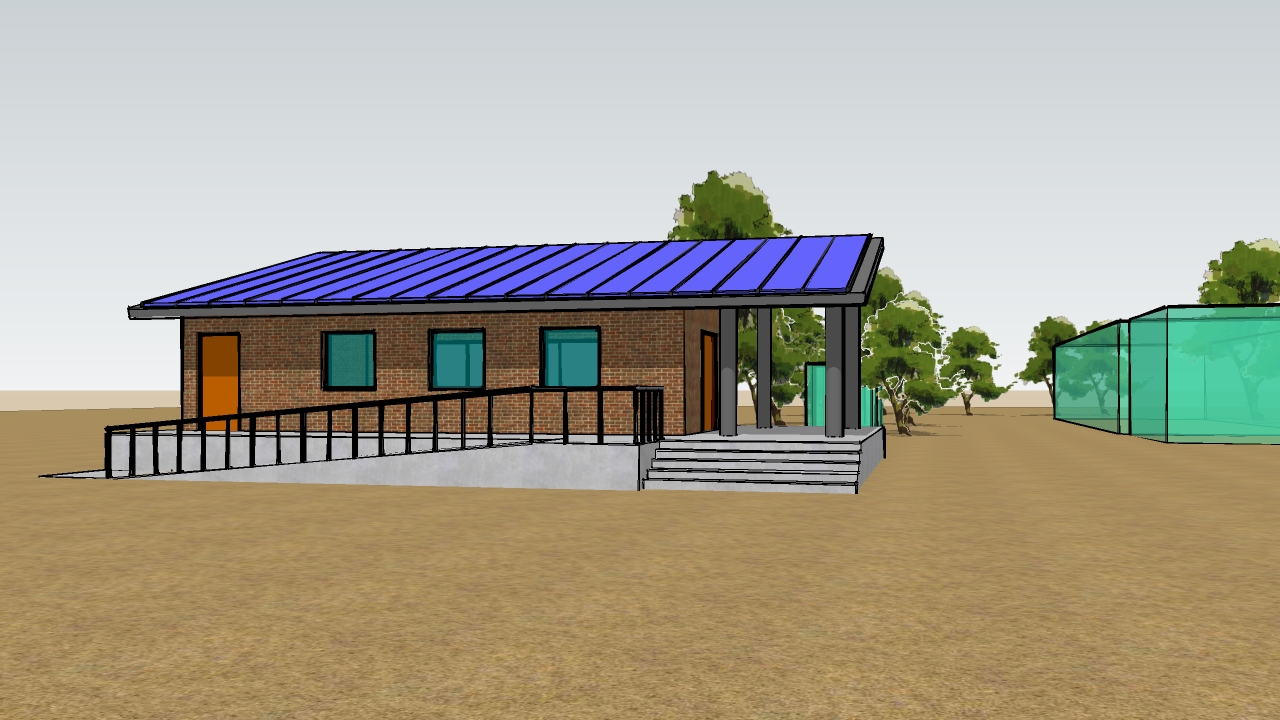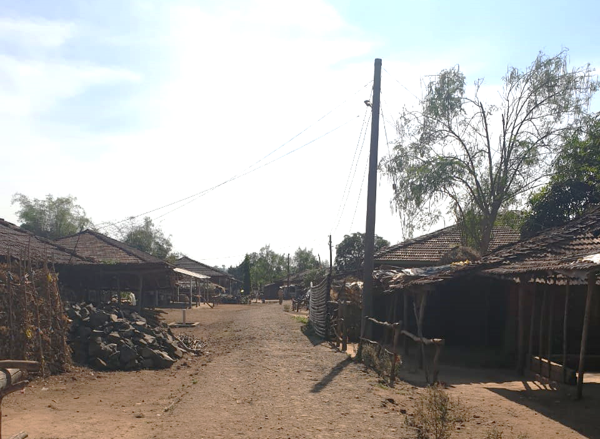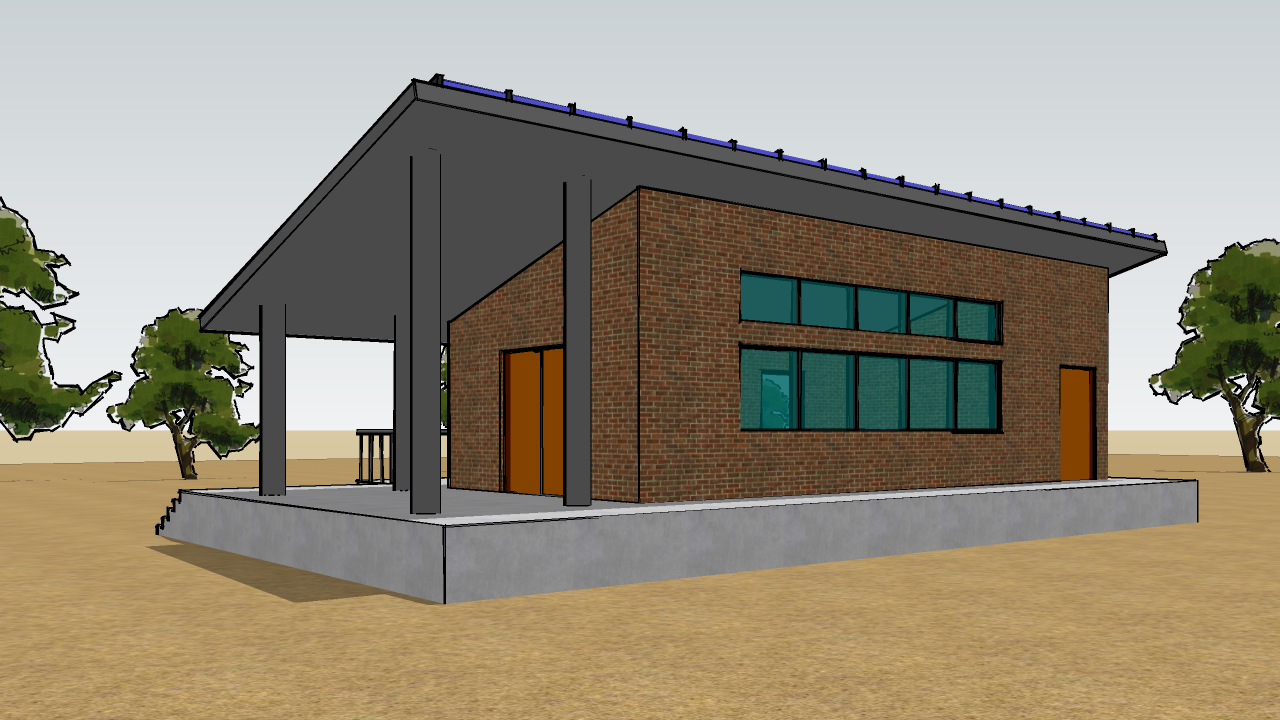We have started construction on our first solar-powered demonstrator building in the village of Khuded in Maharahstra, India.
Khuded, like many rural villages in India, is connected to the grid but struggles with an unreliable and unaffordable electricity supply. Most residents therefore rely on burning fuels such as kerosene and firewood, both of which come with severe risks ranging from respiratory diseases to structural fires.
The SUNRISE building will use solar power to generate and store clean, reliable, off-grid electricity to be shared by the community. The structure will be equipped with technologies for lighting, clean water, sanitation, agricultural activities, and power points for residents to charge batteries (such as for phones and lamps), thus reducing the need to burn fuels.
The Solar-OASIS
This building was designed as part of our Solar-OASIS programme to deliver rapidly deployable, functionalised, solar-powered community buildings for rural populations in the Global South. SUNRISE has already installed three solar micro-grid interventions for rural communities in India, but this will be our first full-scale building demonstrator.
An Active Building
The design was also created in close collaboration with SPECIFIC, in line with their Active Building concept. An Active Building combines a range of integrated renewable energy technologies, which work together in one system to generate, store and release heat and electricity. SPECIFIC have already successfully demonstrated the concept in a UK setting, through the Active Classroom and Active Office on Swansea University’s Bay Campus. The Solar-OASIS building at Khuded demonstrates how SUNRISE has adapted and extended the concept to suit an entirely different socio-economic context and climate.
Co-created with the community
Before any building plans were made, we prioritised engaging the local community. The Tata Institute of Social Sciences worked with local NGO Keshav Shrusthi to carry out public involvement and engagement activities with Khuded residents and compile a prebuild survey report. This active involvement of the local people ensures that the building and associated technologies provided are both wanted and needed by the community.
For example, most residents’ main form of income is selling agricultural produce, but many struggle with a poor electricity supply, unavailabile equipment, and inadequate storage facilities. It was therefore discussed with the community and decided that the building should include technologies for improving agricultural productivity, including a rice husking machine, refrigeration unit, and flour mill.
Without involving the local people, interventions risk going unused. For example, Khuded’s solar street lights no longer work because of a lack of maintenance. To prevent this from happening to the new building and cultivate a feeling of ownership, local NGOs will work with the community to set up an energy committee. This committee will collect a small fee from the residents when they use the electricity, which will then go towards the maintenance of the building.
The future of buildings
In 2017, 840 million people globally were still without access to electricity. What’s more, buildings across the world account for 40% of all carbon emissions. Buildings like this one, that generate their own energy from the sun, do not rely on fossil fuels, and can be deployed in rural settings, can play a key part in the Government of India’s National Solar Mission as well as helping to deliver UN Sustainable Development Goal 7 – sustainable, affordable, reliable, modern electricity for all.


Key delivery partners
Lead strategic partner: Tata Cleantech Capital Ltd.
Funders: Tata Cleantech Capital through CSR Funds, UKRI through its Global Challenges Research Fund
Active Building Design: SPECIFIC IKC, Swansea University
Project Design and Management: EcoFirst Services Ltd.
Technology Suppliers: NestIn, BIPVco Ltd, NSG
Community involvement: Tata Institute of Social Sciences, Centre for Innovative Ageing Swansea University, Keshav Shrusthi (NGO)

